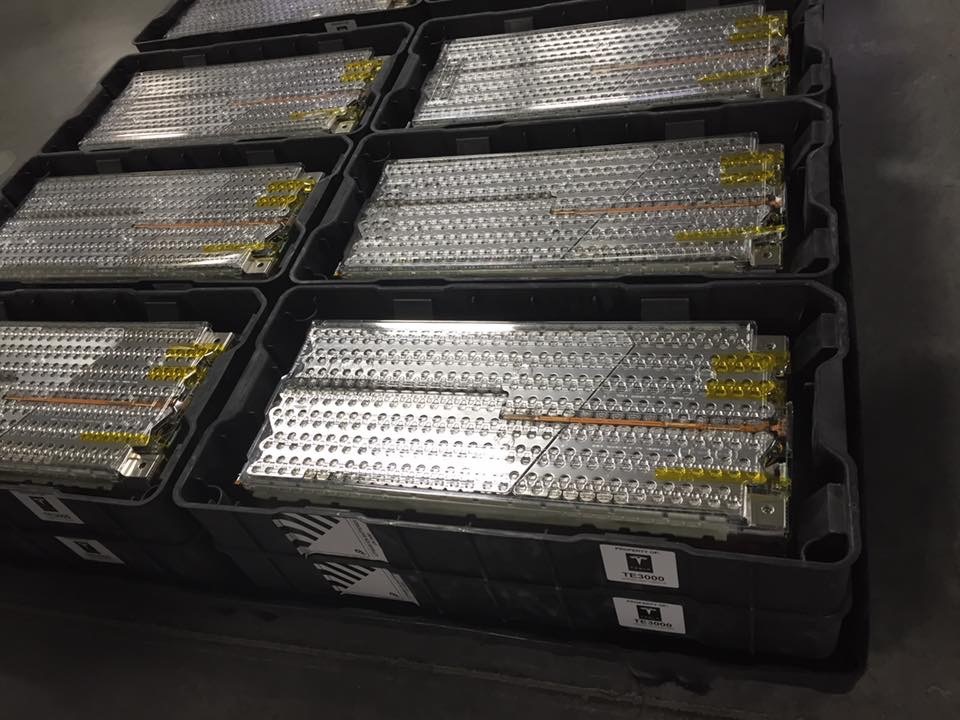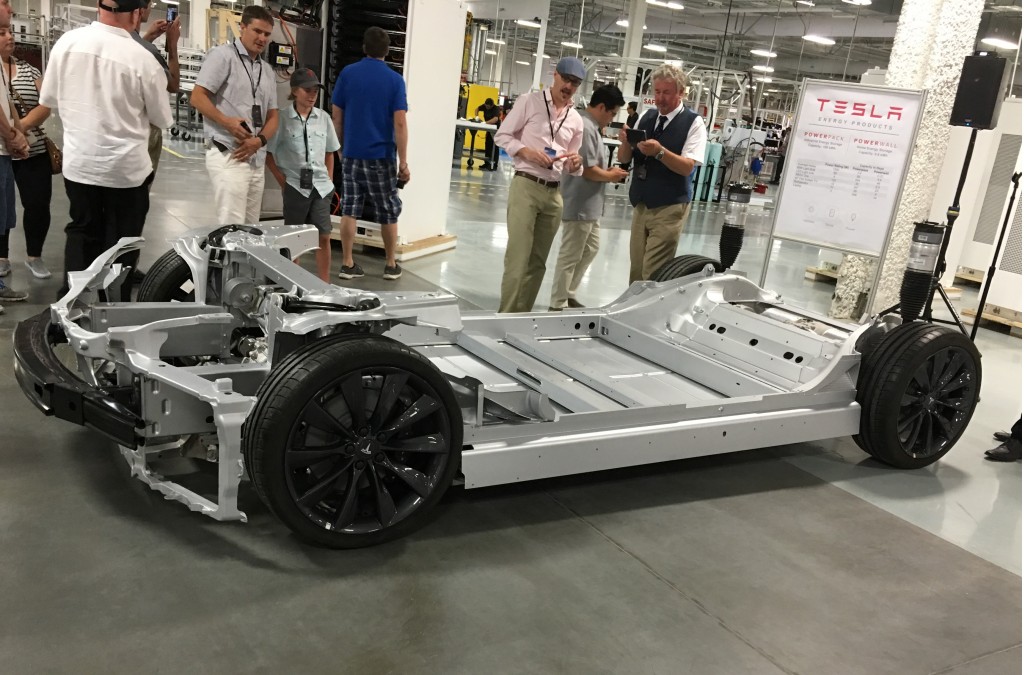Battery research revealed earlier this month and affiliated with Tesla could suggest that the company is well on its way to bringing a million-mile battery to market.
The result could last three times as long as Tesla’s current cells—6,000 cycles, across a wide temperature range—and be the electric-car brand’s “secret sauce” as it moves to prove its vehicles as high-mileage self-driving workhorses.
The work was presented by pioneering lithium-ion battery researcher Jeff Dahm, and focused on a new “single crystal nickel metal hydride (NMC)/artificial graphite” chemistry.
“We conclude that cells of this type should be able to power an electric vehicle for over 1.6 million kilometers (1 million miles) and last at least two decades in grid energy storage,” the paper’s authors outline.

Tour of Tesla battery gigafactory for invited owners, Reno, Nevada, July 2016
The experiments, at Dalhousie University in Canada, were conducted on pouch cells, with the authors cautioning that losses due to the cell format (like cylindrical versus pouch) might not be captured in the experiments and analysis.
Research presented in the paper, published September 6 in Journal of The Electrochemical Society, was supported by Tesla Canada and included years of testing, with charge-discharge power cycling at 20, 40, and 55 degrees Celsius.
Researchers noted the deeper battery cycling needs for “robo taxis,” long-haul trucks, and vehicle-to-grid applications. Tesla CEO Elon Musk has laid out plans for the company’s future as an operator of self-driving “robo taxis,” and notes that the technology will make the cars more valuable in the future.
The researchers did note a lifetime penalty for high-rate charging, though they said several different electrolytes are being considered to promote that.

Tour of Tesla battery gigafactory for invited owners, Reno, Nevada, July 2016
The research announcement underscores what has been known for some time: that Tesla is working to develop its own batteries, independent of longtime partner Panasonic.
What was lacking in the paper was any mention of manufacturing ease, so what remains to be seen is whether these chemistries being considered can be made in such high volume—and as affordably—as current cells. If that can happen, Tesla may blast ahead of others once again.













